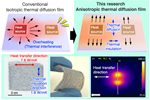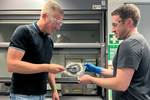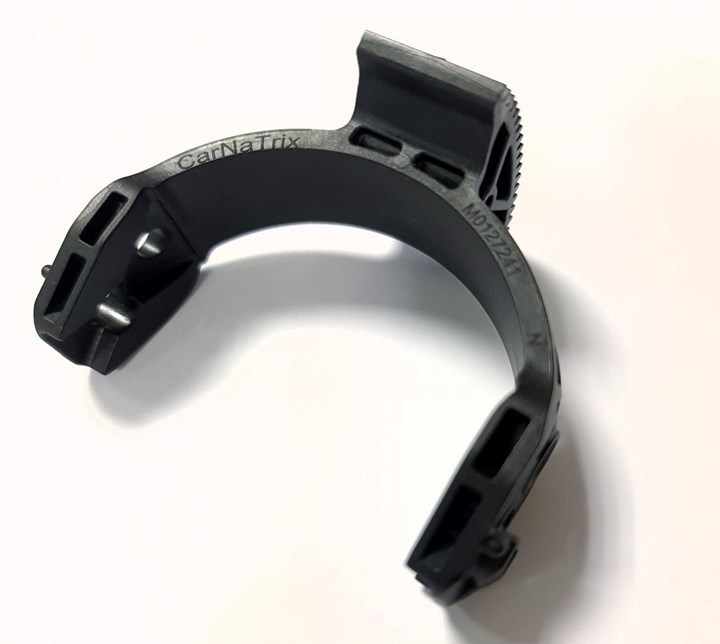Envalior, Koki deliver lightweight, efficient automotive shift fork design
Use of Envalior’s fiberglass-reinforced ForTii ACE MX53 and collaboration with its CAE department helped Koki re-adjust product design, simulation and tooling to get the best out of material performance.
Envalior (Düsseldorf, Germany), a global supplier of high-performance engineering materials, is partnering with transmission shifting systems company Koki Tecknik Transmission Systems GmbH (Niederwürschnitz, Germany), to deliver a shift fork used within an E-Powertrains Decoupling Unit. Koki chose Envalior’s ForTii ACE PPA, which is enforced with 50% glass fiber, for its shift fork application because the material offers extreme high stiffness up to 160°C, design freedom and maximum wear resistance without the need for additional bushings.
Koki’s main objective for the shift fork application was to make it lightweight with high stiffness and maximum wear resistance. The company also wanted to reduce cost of the application when compared to a heavily machined aluminium part.
ForTii ACE is said to be a competitive material when it comes to the substitution of aluminium components within decoupling units used in E-powertrains as well as regular transmissions, according to Ron Krotwaar, advanced development expert, lightweight solutions for Envalior.
“Nearly all functionalities — assembly interfaces, gearing and detection systems — can be integrated in a well-designed component made from a glass fiber-thermoplastic compound without additional processes. As a result, potential cost savings can be achieved,” Martin Wollenberg, head of business development at Koki, adds.
Moreover, with help from Envalior’s CAE services and predictive technologies, the two companies collaborated to further improve the accuracy of Koki’s advanced CAE simulation capabilities, which led to successful geometry optimization for the shift fork’s mechanical performance and processing. The Koki/Envalior team worked together on anisotropic material behavior and material models. Plus, they shared knowledge and experiences about simulating and interpreting results. In addition Envalior supported Koki with viscosity measurements.
“The team captured the material’s behavior and understood how to process the results specifically for Envalior’s ForTii ACE MX53 material,” Krotwaar says. “The Koki and Envalior team enabled a more robust part performance and design to the safe limits. With Envalior’s deep material knowlegde and experience with material behavior, Envalior enabled Koki to readjust product design, simulation and tooling where needed, to get the best out of the material’s performance.”
Related Content
-
Composites end markets: Automotive (2024)
Recent trends in automotive composites include new materials and developments for battery electric vehicles, hydrogen fuel cell technologies, and recycled and bio-based materials.
-
Thermoplastic composites: Cracking the horizontal body panel nut
Versatile sandwich panel technology solves decades-long exterior automotive challenge.
-
McLaren celebrates 10 years of the McLaren P1 hybrid hypercar
Lightweight carbon fiber construction, Formula 1-inspired aerodynamics and high-performance hybrid powertrain technologies hallmark this hybrid vehicle, serve as a springboard for new race cars.
















